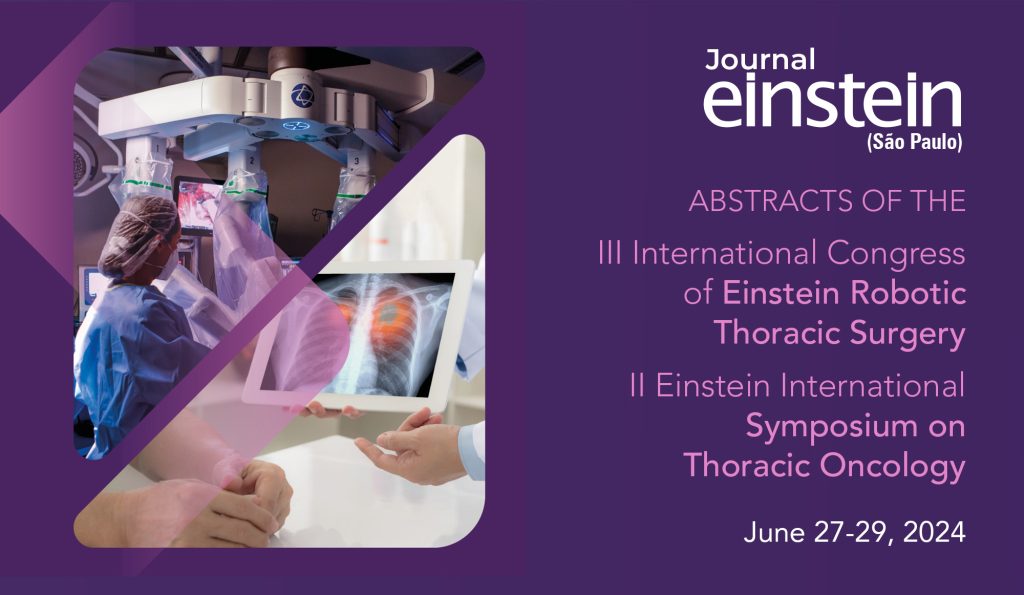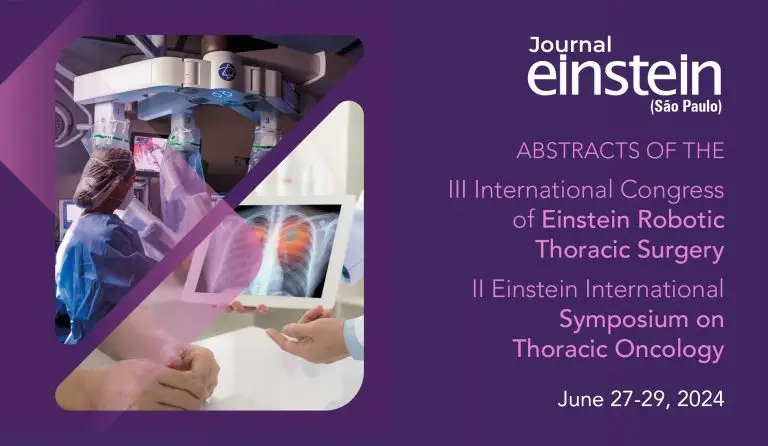einstein (São Paulo). 25/Jun/2024;22(Suppl 1):STO001.
Assessment of genomic variants and overall survival in primary tumor lung adenocarcinoma and corresponding mediastinal lymph nodes obtained by EBUS- TBNA
DOI: 10.31744/einstein_journal/2024ABS_BTS_STO001
Category: Respiratory Endoscopy
Introduction:
Histopathological analyses and classification by the Tumor, Node, Metastasis System (TNM) are key-elements in therapeutic decision-making for non-small cell lung cancer (NSCLC).() Endobronchial ultrasound-guided transbronchial needle aspiration (EBUS-TBNA) is effective in obtaining biopsies of hilar and mediastinal lymph nodes (MLN), for tissue collection to mediastinal staging in NSCLC.(,) The assessment of clinically significant genomic alterations in surgically resected primary tumors (PT) and MLN aspirates obtained by EBUS-TBNA can provide valuable insights into the risk of recurrence, presence of occult metastases, and the identification of patients eligible for personalized therapies.()
Objectives:
To analyze somatic variants of clinical relevance in genomic DNA (gDNA) extracted from formalin-fixed, paraffin-embedded (FFEP) PT tissues and MLN aspirates using next-generation sequencing (NGS), correlating the findings with patient overall survival.
Methods:
The gDNA was extracted from paired samples (PT and MLN) from 32 patients with lung adenocarcinoma, resulting in 64 samples, and analyzed using a customized genetic panel consisting of 107 genes, utilized SureSelect XTHS2 kit (Agilent Technologies, Santa Clara, CA, USA). The overall survive were assessed using Kaplan-Meier curves (IBM SPSS Statistics 25.0; Chicago, Illinois, EUA).
Results:
Strong and potential clinical significance variants were detected in 72% of PT and 75% of MLN samples. These variants were identified in 14 different genes, highlighting EGFR, TP53, KRAS, and ATM, with a frequency of more than 15% and 10% in PT and MLN samples, respectively. Concerning survival analysis, no significant difference was observed in PT samples. Surprisingly, in MLN samples, significant differences were noted in the TP53 and ATM genes (p-values of 0.001 and 0.035, respectively). This suggests that the identified variants may correlate with worse prognosis, recurrence or occult metastasis in the patients evaluated.
Conclusion:
In summary, we identified distinct somatic variants between PT and MLN samples, with survival being negatively impacted by the presence of variants in MLN. Thus, the incorporation of genomic testing applied to MLN samples could enhance the accuracy of TNM staging, providing a more comprehensive approach to patient management.
Keywords: Cancer genomic; Mediastinal lymph node; Adenocarcinoma; EBUS-TBNA; NGS
89



